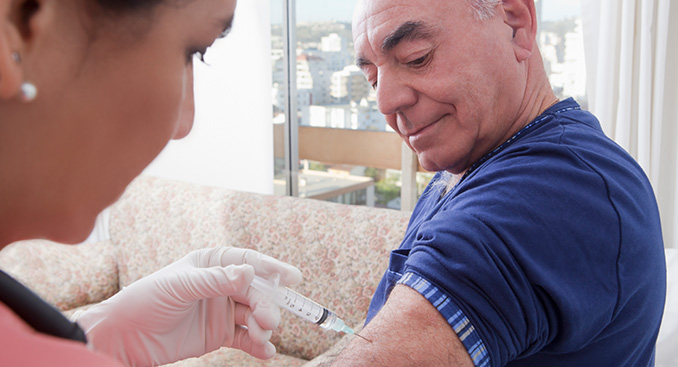As Measles Cases Rise, Health Authorities Urge a Closer Look at Your Vaccination History

A high number of reported cases of measles in the U.S., after being declared as eliminated in the U.S. as recently as 2000, is leading to an increased call for vaccinations, even for many adults who may already be vaccinated. The United States Centers for Disease Control and Prevention (CDC) reports a total of 706 cases of the illness nation-wide through April, the most since 963 for the entire year in 1994.
The acute viral illness is highly contagious and easily spread via droplets in the air from sneezing and coughing of infected people. Common symptoms include fever and rash with complications such as bronchitis, pneumonia, encephalitis and death, although there have been no reported cases of measles-related encephalitis or death in 2019, according to CDC data.
Of the reported cases in 2019, 71 percent have been among unvaccinated persons, with 18 percent among people whose vaccination status is unknown. Outbreaks in close-knit communities where unvaccinated persons are common, as is with those who frequently travel internationally, account for 88 percent of all cases. While there have been no cases reported in Ohio, neighboring states Kentucky, Michigan, Indiana and Pennsylvania have all reported cases.
“It’s probably only a matter of time before we see cases in Ohio,” says Stephen Blatt, MD, Director for Infectious Diseases with TriHealth Physician Partners. “With increased communication from public health authorities about the importance of vaccination, our doctors are receiving a lot of calls from people inquiring about their vaccination status.”
Who should be vaccinated?
The current Measles-Mumps-Rubella vaccine (MMR), is proven to be very safe and effective, with one dose being 93 percent effective and two doses 97 percent effective. Children should receive a dose at 12 through 15 months of age, and the second dose at 4 through 6 years of age.
Most adults in the U.S. are adequately vaccinated against measles, but the recent rise in cases has brought attention to under-vaccinated groups who should consider contacting their primary care physician to ask about receiving a vaccination. For example, those born between 1963 and 1967 may have received a vaccination against a killed virus that may have lost effectiveness and they should ask their doctor about receiving a boost.
Unsure about vaccinations?
The CDC also recommends that those who are unable to prove adequate vaccination due to lost or inaccurate records consider getting a boost, especially those among certain at-risk groups.
“They specify groups such as college students, international travelers, health care professionals and others who might be in close proximity to potentially unvaccinated people,” Dr. Blatt says. “If you fall into one of those categories and don’t have proof of vaccination, you should absolutely see your doctor.”
Whether people are unsure of their vaccination level or if they fall into the age group who received the inferior vaccination, Dr. Blatt says they also have the option of getting laboratory proof of immunity before determining their need for a boost. “All of our primary care physicians can order blood work that can provide very accurate information on a patient’s immunity level,” he says. “The bottom line, however, is that there is no risk in receiving a boost, so if a patient falls into any of the recommended groups for receiving a boost, they should probably get one.”